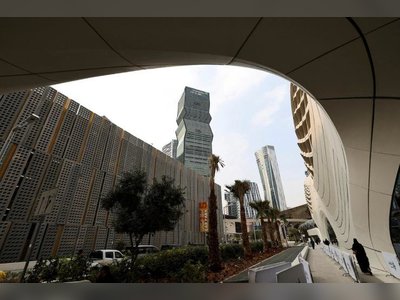Israelis rally in three cities against Netanyahu legal reforms
Tens of thousands of Israelis demonstrated in three major cities on Saturday against Prime Minister Benjamin Netanyahu's judicial reform plans, with organisers accusing his government of undermining democratic rule weeks after his re-election.
In their brilliant speeches, Supreme Court President Ester Hayut and Justice Minister Yariv Levin used seminal quotes from Menachem Begin and Zeev JabotinskyI to illuminate this critical issue. However, with all due respect for the power of their words, the quote that I think is most relevant to the current controversy is from Knesset member David Bitan: “We should not make corrections with a 10 kilo hammer”.
The reform that the new Israeli government is trying to carry out is essentially what they describe as democratization of the system of government in Israel. Their opponents claim that it is exactly the opposite, and that the reform will totally eliminate the relatively democratic system in Israel.
Both sides are right in their reasoning, and have justification for pointing their fingers at the other. But both are wrong, in claiming superiority and unilateral ownership of themselves as the solution.
The proposed reform seeks to end the monopoly of the Supreme Court and of the legal advisor appointed by the ousted government, to determine who cannot participate in elections or serve in the government or any other public service, and which laws to disqualify. The status quo supporters claim that they are more qualified than the elected government and the people to make such administrative and leadership decisions.
The reform also seeks to end the monopoly of judges to have the veto power to control who wI’ll not serve on the Supreme Court. In fact, from the establishment of the State of Israel until today, it has not been possible to appoint a judge without the consent of the existing judges themselves, who often reject candidates because of their political, social or sexual orientation and standpoint. According to the opponents of this system, this creates cloning of the same political, ideological and legal uniformity, without the balance and diversity that should properly reflect the different parts of Israeli society (for example, they’ve blocked distinguished and internationally well appreciated law and human rights professor from becoming a Supreme Court judge, because of her pro LGBT agenda).
The supporters of the status quo claim that the system by which the existing judges determine who cannot be appointed as a judge, and by which the government legal “advisor”, who current appointed by the opposition, will have the supreme power as a governor in colonial regime, to allow or block the elected government from governing. The status quo supporters insist that having bureaucrats power above the democratically elected government is essential for the protection of human rights. Supporters of the current system claim that the public and its elected officials should not be given supreme authority to decide which laws to enact, which actions the government will take, and which ministers will be appointed to their respective positions.
However, the majority of the public agrees in principle with the supporters of the status quo regarding the claim that politicians cannot be trusted, and that it is dangerous to leave in their hands the exclusive authority to rule without external and independent checks and balances.
But on the other hand, the majority of the public also recognizes the fact that the absolute power in the hands of the judicial system has not only naturally corrupted it, but that this absolute power actually has been abused too many times, to push political agenda against the elected government’s agenda, in the name of “reasonable” and “proper”, and in fact removes from democracy the practical ability for it to function as it should and as the people legitimately chose.
The resulting situation in this conflict is essentially an impasse, a stand-off where both sides demand that the other side does not have a monopoly on the state and its laws, which is ok, but in the name of so-called “democracy” both sides demand absolute power for the final decisions.
Who should have the final power to decide what to do or not to do: the unelected judges, or the elected government, that is the power game on this conflict.
To strengthen their claim, supporters of the reform describe the unhappy norm as follows: whenever a minister or prime minister takes political steps which are contrary to the political position of the legal system, the legal system immediately files an indictment against him, too many times with blames which has been fabricated or inflated far beyond the evidence itself, so that the very filing of the indictment requires him to resign immediately, even if after many years it turns out that the accusation was unfounded or exaggerated. In fact this process allows the judicial officials to have exclusive control over the political moves, above the voters' will, and completely disconnected from the election result.
Supporters of the reform also have claims about abuse of the legal monopoly in the opposite direction: they claim that the legal system covers up suspects / criminals in the political system who support the judges monopoly on the final decisions as well as the judges political agenda, in exchange of avoiding to bringing them to trial even when there is unequivocal evidence that they have committed criminal offenses.
According to them, this creates relationships of dependence, extortion and coercion of the will of the officials of the legal system on the elected officials.
The vicious circle that leads to this political-legal-social limbo is that no matter how correct or exaggerated the reformers are in their claims, the law is always on the other side. The importance of this cannot be ignored. The supporters of the status quo - that the supreme power in Israel should be the legal system and not the rule of the majority - are absolutely right in their main claim, which is that politicians should not be trusted.
They should not be left with the exclusive right to run the country, and they should not be trusted to protect human rights in general, and of minorities in particular.
The reason for that is that the reality in Israel, just as in every other democracy, is that politics attracts (not all but some) very dubious people: Opportunists who love bribes and personal gains; charlatans with poor skills and a history of zero success; carpet-baggers who want to get rich quickly and easily at the expense of the public; con-men who are sure that "honesty" is a concept not for them but only for idiots and suckers.
Of course not every politician is like that. The problem is - just as with their opponents, the lawyers in charge of the judicial system - “it’s only the 99% which is to blame for the unjustified dubious reputation of all the rest”.
However, this is not only the problem but also the potential solution:
Both sides, the political members and the legal system, know from bitter experience and from endless historical examples that the other side cannot be trusted. But both sides are also aware that they have brought about their own dubious reputations through long years of problematic actions, failures and flaws.
Therefore, in my opinion, the solution is that every law should require the consent of both the elected government and the judiciary. On any issue where the two authorities fail to reach an agreement, an automatic, quick smartphone citizens' poll app should be held in a way that is fully transparent and auditable.
Of course, no matter what political agenda the judges and politicians are promoting at any given time, human rights and international law should always be above the dictatorship of the majority (nor the minority), so the system must prohibiting holding referendums on issues that are contrary to international law and the UN Universal Declaration of Human Rights.
For any other issues, as long as it’s not against human rights nor against the international law, the will of the people must always be above the will of the non-elected bureaucrats.
The Supreme Court of Israel must set back and stop rejecting the concept of democracy that is of the people, by the people, for the people.
Regarding the system for appointing judges, the problem is much more serious and fundamental than simply who will elect the lawyers that will become judges.
The big underlying problem is that Law and Justice have too often very little in common, if anything at all.
The problem is that the Supreme Court of Appeal, which naturally consists of professional lawyers, is currently also the Supreme Court of Justice, even though natural justice is in many cases the opposite of a law, contrary to the legal procedures, and a diametrically different view to the one-eyed dimension of the law in general.
The sense of justice of a lawyer appointed as a judge is - in understatement - no way better than the sense of justice of a doctor, accountant, bank manager, housewife, journalist, philosopher, police officer, scientist, or the CEO of a publicly-listed company. Just as judges, some of them are very smart and some of them not so, some of them are honest and some of them not so, and some of them have some weaknesses while the rest have other weaknesses. It’s only people. Always far away from being perfect.
So the key is to divide the powers of the Supreme Court between two separate institutions: one that is run by professional law experts, as the Supreme Court of appeal, that will be appointed as judges are appointed now; and the other is the Supreme Court of Justice, with representation from all the professionals - and non-professionals - mentioned in the paragraph above, elected randomly on a per case basis.
That’s how, instead of the current colonial legal system that has been in force in Israel since its establishment, Israel can finally get a real, balanced and diverse justice system, that deliver Justice, by the views of all walks of life and not only lawyers, that is real Justice, above the law.
Israel is currently very successful and powerful nation. After the upcoming peace agreements with Saudi Arabia and probably Qatar to follow and Iran to give up the fight, the entire region will become much more powerful than the USA or the EU combined.
Following the amazing success in building such a powerful, rich and productive nation out of the tragic crisis of the Holocaust, Israelis should stop fighting with each other (and with others) - and should follow this very simple rule: never try to fix what is working; and never hesitate to change what is not working properly.
Improvements to the system should be accomplished by constructive dialogue based on common interest, rather than ugly fights which will surely produce losers with or without real winners.
Simply to use common sense instead of anger and violence. To make an honest acknowledgment of the real problems, and keep an open mind for fair, balanced and long- lasting solutions. Not necessarily for the ones suggested above, but for solutions that the people of Israel - all of them - will understand, welcome, accept and respect.
Otherwise, Israel might fail again, for the very same K vs K reasons, for the third time: internal conflicts and power struggles.
The reform that the new Israeli government is trying to carry out is essentially what they describe as democratization of the system of government in Israel. Their opponents claim that it is exactly the opposite, and that the reform will totally eliminate the relatively democratic system in Israel.
Both sides are right in their reasoning, and have justification for pointing their fingers at the other. But both are wrong, in claiming superiority and unilateral ownership of themselves as the solution.
The proposed reform seeks to end the monopoly of the Supreme Court and of the legal advisor appointed by the ousted government, to determine who cannot participate in elections or serve in the government or any other public service, and which laws to disqualify. The status quo supporters claim that they are more qualified than the elected government and the people to make such administrative and leadership decisions.
The reform also seeks to end the monopoly of judges to have the veto power to control who wI’ll not serve on the Supreme Court. In fact, from the establishment of the State of Israel until today, it has not been possible to appoint a judge without the consent of the existing judges themselves, who often reject candidates because of their political, social or sexual orientation and standpoint. According to the opponents of this system, this creates cloning of the same political, ideological and legal uniformity, without the balance and diversity that should properly reflect the different parts of Israeli society (for example, they’ve blocked distinguished and internationally well appreciated law and human rights professor from becoming a Supreme Court judge, because of her pro LGBT agenda).
The supporters of the status quo claim that the system by which the existing judges determine who cannot be appointed as a judge, and by which the government legal “advisor”, who current appointed by the opposition, will have the supreme power as a governor in colonial regime, to allow or block the elected government from governing. The status quo supporters insist that having bureaucrats power above the democratically elected government is essential for the protection of human rights. Supporters of the current system claim that the public and its elected officials should not be given supreme authority to decide which laws to enact, which actions the government will take, and which ministers will be appointed to their respective positions.
However, the majority of the public agrees in principle with the supporters of the status quo regarding the claim that politicians cannot be trusted, and that it is dangerous to leave in their hands the exclusive authority to rule without external and independent checks and balances.
But on the other hand, the majority of the public also recognizes the fact that the absolute power in the hands of the judicial system has not only naturally corrupted it, but that this absolute power actually has been abused too many times, to push political agenda against the elected government’s agenda, in the name of “reasonable” and “proper”, and in fact removes from democracy the practical ability for it to function as it should and as the people legitimately chose.
The resulting situation in this conflict is essentially an impasse, a stand-off where both sides demand that the other side does not have a monopoly on the state and its laws, which is ok, but in the name of so-called “democracy” both sides demand absolute power for the final decisions.
Who should have the final power to decide what to do or not to do: the unelected judges, or the elected government, that is the power game on this conflict.
To strengthen their claim, supporters of the reform describe the unhappy norm as follows: whenever a minister or prime minister takes political steps which are contrary to the political position of the legal system, the legal system immediately files an indictment against him, too many times with blames which has been fabricated or inflated far beyond the evidence itself, so that the very filing of the indictment requires him to resign immediately, even if after many years it turns out that the accusation was unfounded or exaggerated. In fact this process allows the judicial officials to have exclusive control over the political moves, above the voters' will, and completely disconnected from the election result.
Supporters of the reform also have claims about abuse of the legal monopoly in the opposite direction: they claim that the legal system covers up suspects / criminals in the political system who support the judges monopoly on the final decisions as well as the judges political agenda, in exchange of avoiding to bringing them to trial even when there is unequivocal evidence that they have committed criminal offenses.
According to them, this creates relationships of dependence, extortion and coercion of the will of the officials of the legal system on the elected officials.
The vicious circle that leads to this political-legal-social limbo is that no matter how correct or exaggerated the reformers are in their claims, the law is always on the other side. The importance of this cannot be ignored. The supporters of the status quo - that the supreme power in Israel should be the legal system and not the rule of the majority - are absolutely right in their main claim, which is that politicians should not be trusted.
They should not be left with the exclusive right to run the country, and they should not be trusted to protect human rights in general, and of minorities in particular.
The reason for that is that the reality in Israel, just as in every other democracy, is that politics attracts (not all but some) very dubious people: Opportunists who love bribes and personal gains; charlatans with poor skills and a history of zero success; carpet-baggers who want to get rich quickly and easily at the expense of the public; con-men who are sure that "honesty" is a concept not for them but only for idiots and suckers.
Of course not every politician is like that. The problem is - just as with their opponents, the lawyers in charge of the judicial system - “it’s only the 99% which is to blame for the unjustified dubious reputation of all the rest”.
However, this is not only the problem but also the potential solution:
Both sides, the political members and the legal system, know from bitter experience and from endless historical examples that the other side cannot be trusted. But both sides are also aware that they have brought about their own dubious reputations through long years of problematic actions, failures and flaws.
Therefore, in my opinion, the solution is that every law should require the consent of both the elected government and the judiciary. On any issue where the two authorities fail to reach an agreement, an automatic, quick smartphone citizens' poll app should be held in a way that is fully transparent and auditable.
Of course, no matter what political agenda the judges and politicians are promoting at any given time, human rights and international law should always be above the dictatorship of the majority (nor the minority), so the system must prohibiting holding referendums on issues that are contrary to international law and the UN Universal Declaration of Human Rights.
For any other issues, as long as it’s not against human rights nor against the international law, the will of the people must always be above the will of the non-elected bureaucrats.
The Supreme Court of Israel must set back and stop rejecting the concept of democracy that is of the people, by the people, for the people.
Regarding the system for appointing judges, the problem is much more serious and fundamental than simply who will elect the lawyers that will become judges.
The big underlying problem is that Law and Justice have too often very little in common, if anything at all.
The problem is that the Supreme Court of Appeal, which naturally consists of professional lawyers, is currently also the Supreme Court of Justice, even though natural justice is in many cases the opposite of a law, contrary to the legal procedures, and a diametrically different view to the one-eyed dimension of the law in general.
The sense of justice of a lawyer appointed as a judge is - in understatement - no way better than the sense of justice of a doctor, accountant, bank manager, housewife, journalist, philosopher, police officer, scientist, or the CEO of a publicly-listed company. Just as judges, some of them are very smart and some of them not so, some of them are honest and some of them not so, and some of them have some weaknesses while the rest have other weaknesses. It’s only people. Always far away from being perfect.
So the key is to divide the powers of the Supreme Court between two separate institutions: one that is run by professional law experts, as the Supreme Court of appeal, that will be appointed as judges are appointed now; and the other is the Supreme Court of Justice, with representation from all the professionals - and non-professionals - mentioned in the paragraph above, elected randomly on a per case basis.
That’s how, instead of the current colonial legal system that has been in force in Israel since its establishment, Israel can finally get a real, balanced and diverse justice system, that deliver Justice, by the views of all walks of life and not only lawyers, that is real Justice, above the law.
Israel is currently very successful and powerful nation. After the upcoming peace agreements with Saudi Arabia and probably Qatar to follow and Iran to give up the fight, the entire region will become much more powerful than the USA or the EU combined.
Following the amazing success in building such a powerful, rich and productive nation out of the tragic crisis of the Holocaust, Israelis should stop fighting with each other (and with others) - and should follow this very simple rule: never try to fix what is working; and never hesitate to change what is not working properly.
Improvements to the system should be accomplished by constructive dialogue based on common interest, rather than ugly fights which will surely produce losers with or without real winners.
Simply to use common sense instead of anger and violence. To make an honest acknowledgment of the real problems, and keep an open mind for fair, balanced and long- lasting solutions. Not necessarily for the ones suggested above, but for solutions that the people of Israel - all of them - will understand, welcome, accept and respect.
Otherwise, Israel might fail again, for the very same K vs K reasons, for the third time: internal conflicts and power struggles.











